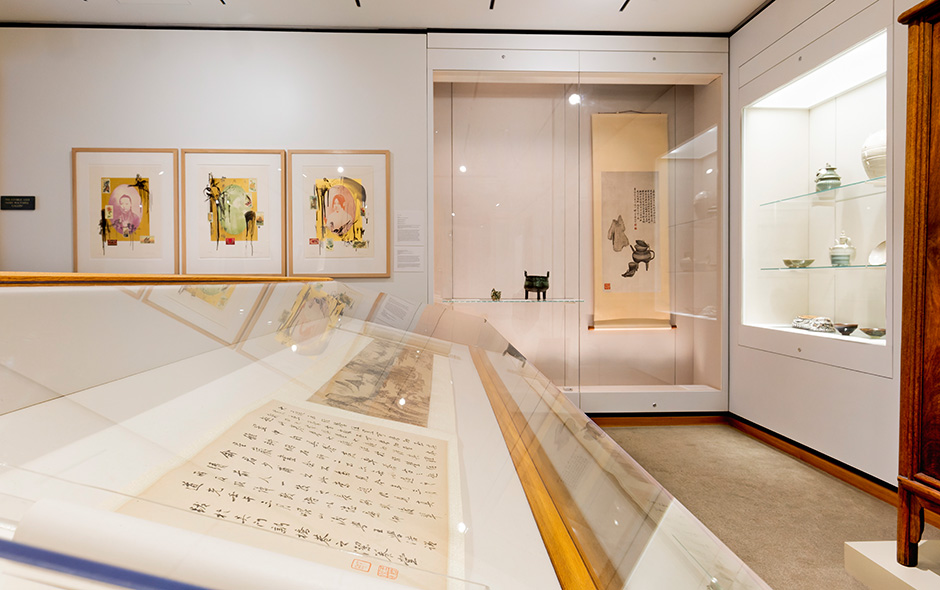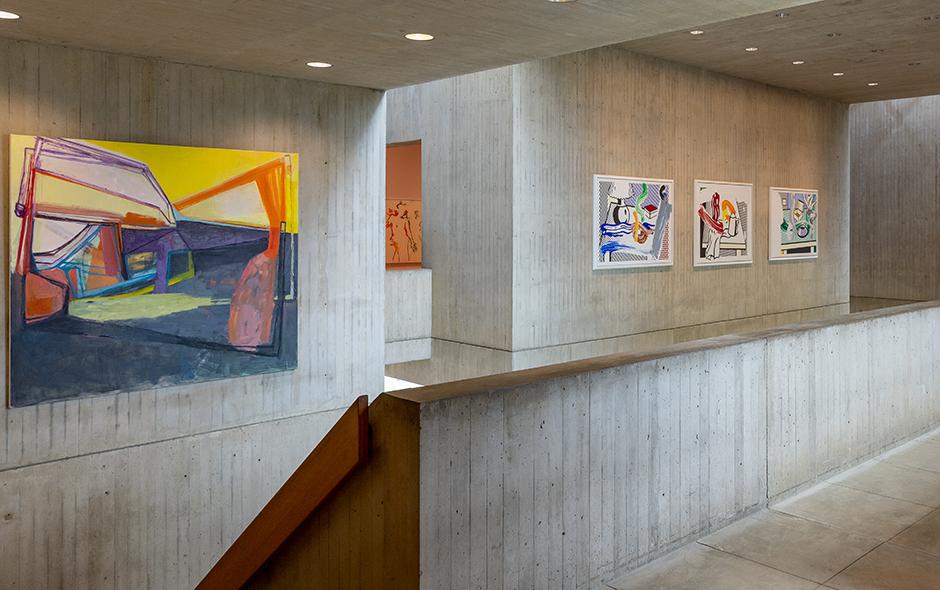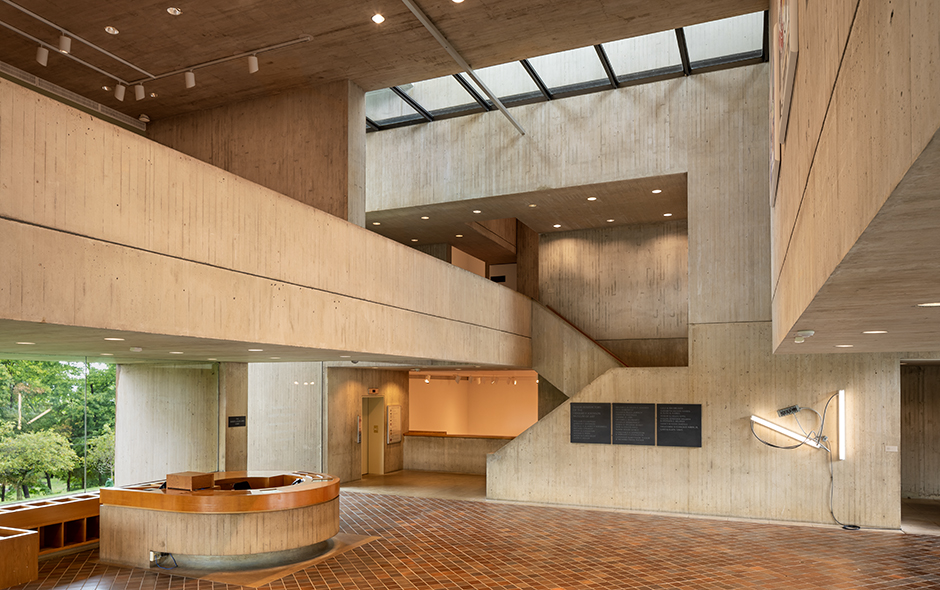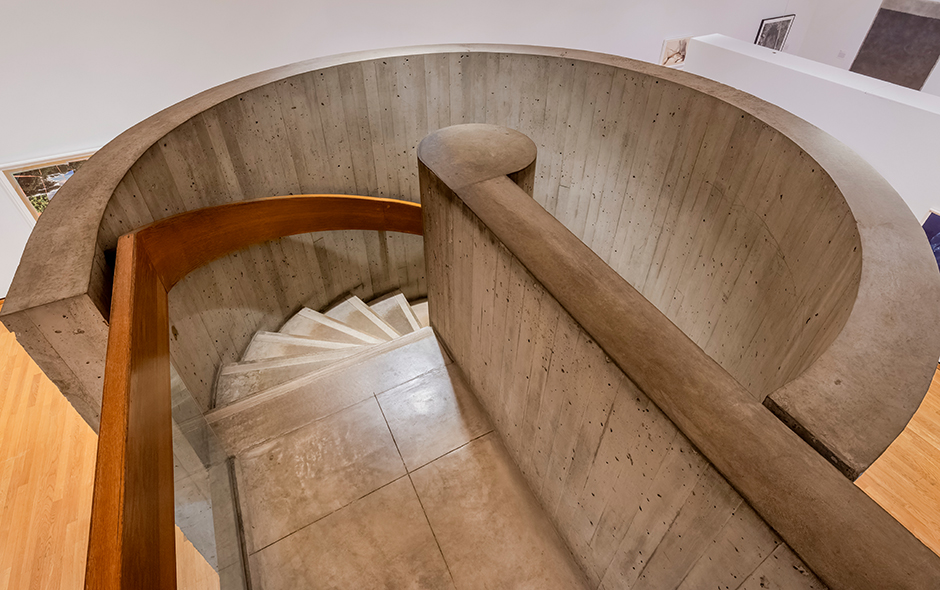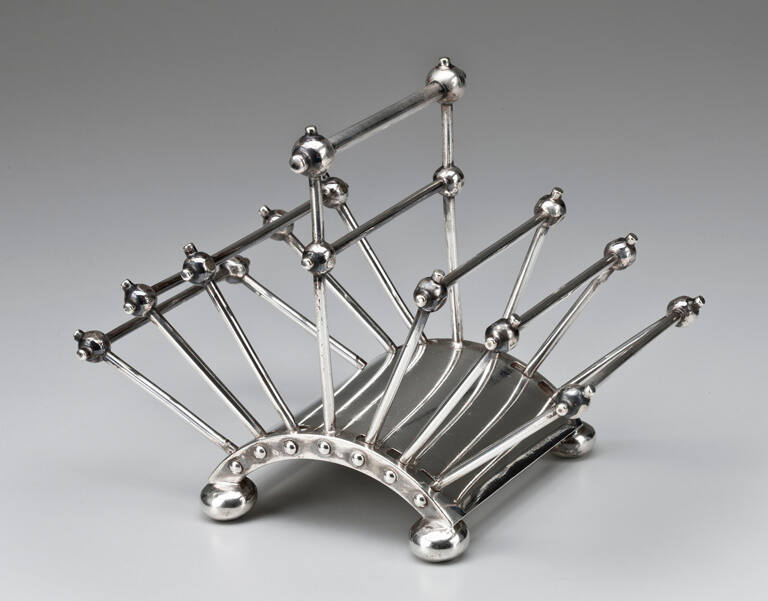


Object Details
Artist
Christopher Dresser
Date
1881
Medium
Silver plate
Dimensions
5 × 6 1/2 inches (12.7 × 16.5 cm)
Credit Line
Gift of Isabel and William Berley, Classes of 1947 and 1945
Object
Number
99.078.102
WHERE WAS IT MADE?This letter rack was made by Hukin & Heath around 1881. Hukin & Heath was a firm o(…)
WHERE WAS IT MADE?This letter rack was made by Hukin & Heath around 1881. Hukin & Heath was a firm of silversmiths established in 1875 that was popular for its Japanese-style silver and glassware. They were based in Birmingham, England.WHO WAS THE ARTIST?Christopher Dresser was born in Glasgow, Scotland in 1834. He attended the Glasgow School of Design and studied both design and botany. He went on to receive a doctorate in botany from the University of Jena. In 1860, Dresser set up his own studio and began producing designs inspired by his study of botany and his interest in the cultures of the Far East. He would later travel to Japan as a representative of the British Government, studying and gathering objects for his own inspiration and for the collection of designers like Louis Comfort Tiffany and for the South Kensington Museum. Dresser helped create a new design style that utilized modern materials and technology. He enjoyed enormous success, designing objects produced by such notable manufacturers as Wedgwood and Minton. In 1881 he opened a store known as The Art Furnishers’ Alliance that offered furniture, ceramics, glass, metalwork, and other fancy goods, but the venture proved unsuccessful, lasting only three years. He died in Mulhouse, France in 1904 while visiting a client.HOW WAS IT MADE?This letter rack is made from silver plated metal. Silver plate or plating is a process involving an electrical current used to deposit a thin layer of silver onto an article or vessel made of a base metal like copper or nickel silver. The process was developed in the 1830s and was patented by Elkington & Co. around 1836. It made silver objects more affordable for many middle-class families.HOW WAS IT USED?This metal rack is used to hold letters. It features moveable struts on a curved base, enabling the side-to-side movement of the arms, thereby allowing the user to insert or remove letters with ease. This particular model is often mistaken for a toast rack, which looks similar but has immovable arms.WHY DOES IT LOOK LIKE THIS?Christopher Dresser designed many items with industrial manufacturing in mind. They were meant to be simple, well-made and affordable for many people, with the form of the piece developing from its function. Many of his designs, like this one, were sleek and geometrical, with minimal ornamentation.To see other objects by Christopher Dresser in the Johnson Museum’s collection, search for object numbers 99.078.103 a,b, 99.078.104, 99.078.105, 99.078.106 a,b, 99.078.107, and 99.078.130 in the keyword search box.
Discover More
There Is No Easy Way From the Earth To the Stars, Society of Medallists 8th Issue
Gaetano Cecere, Medallic Art Co.
Hail To Dionysus Who First Discovered the Magic of the Grape, Society of Medallist 2nd Issue, 1930
Paul Manship, Medallic Art Co.




